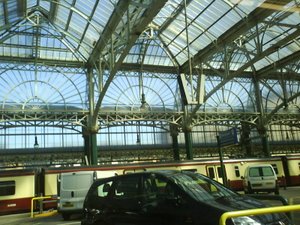 On the back of Ewan's post about the latest manifestation of the construction toy Lego, this is the lesson I devised way back when Standard Grade English was new and different and we had to devise means of providing integrated occasions for Talk assessment and Transactional Writing (always dodgy in that it seemed all too easy to lapse into Creative Writing and lose one of the requirements for the dreaded Folio). Interestingly, this lesson was part of a unit we called The Technology Unit, subtitled Men and Machines.
On the back of Ewan's post about the latest manifestation of the construction toy Lego, this is the lesson I devised way back when Standard Grade English was new and different and we had to devise means of providing integrated occasions for Talk assessment and Transactional Writing (always dodgy in that it seemed all too easy to lapse into Creative Writing and lose one of the requirements for the dreaded Folio). Interestingly, this lesson was part of a unit we called The Technology Unit, subtitled Men and Machines.I bought five of the small Lego model sets, each making a different little vehicle, complete with driver/operative. In order to do away with the illustration on the boxes, I got the techy department to provide me with neat little wooden containers with sliding lids - this went down strangely well all round. In these went the sets and their leaflets, each with the set of diagrams representing each stage in the building of the model.
The class split into five groups. Two at a time, they sat back to back, one with the Lego bricks and a desk to work on, one with the leaflet of instructions. It was the job of the one with the leaflet to translate the pictures into words and instruct the builder how to make the model. This involved them in searching for the best word for the studs, beams, bricks and so on, and in expressing as clearly as possible how they were to be aligned.
The rest of the group watched and listened, noting what made for effective communication - or complete disaster - and waiting for their turn. It was interesting that not all benefited from coming later in the exercise; perhaps the fact that the models were destroyed and then moved on to the next group after each building helped to maintain the level of difficulty. When the spoken exercise was over and assessed - lots of jinking around on the part of the teacher - the class then wrote a report on the experience as they had observed it.
Every class I did this with loved the exercise - there was a great deal of hilarity - and were keen to write it up afterwards, often producing reports which showed considerable insight into the process. It was a good introduction to transactional writing of an original kind, and gave the the satisfaction of having two solid grades at the very beginning of the S grade course.
I'd forgotten about this until reading Ewan's post today; he tells me no-one would know how to play this game from the comment I left on it, so here you are - old-fashioned technology!






